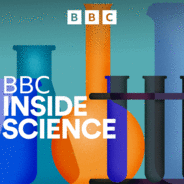This week President Trump’s director of the Office of Management and Budget announced that a major climate research centre would be broken up. 2025 has brought a wave of reorganisations and funding cuts, reshaping the ways science is done in the USA. Veteran science journalist Roland Pease tells us whether we’re starting to see the impacts.Victoria Gill gets a subterranean tour of Finland’s new nuclear waste disposal facility. It’s the first country in the world to get one and the UK are interested in learning how they did it. Victoria is also joined by science journalist Caroline Steel to talk about this week in science research.And 40 years ago, Dian Fossey was murdered at her home in Rwanda where she had spent decades studying mountain gorillas. Gilly Forrester, Professor of Comparative Cognition at the University of Sussex talks about why the data collected from Dian’s ‘gorillas in the mist’ continues to shape science today.To discover more fascinating science content, head to bbc.co.uk search for BBC Inside Science and follow the links to The Open University.Presenter: Victoria Gill
Producers: Clare Salisbury, Kate White and Tim Dodd
Editor: Martin Smith
Production Co-ordinator: Jana Bennett-Holesworth

Wissenschaft & Technik
BBC Inside Science Folgen
A weekly programme that illuminates the mysteries and challenges the controversies behind the science that's changing our world.
Folgen von BBC Inside Science
637 Folgen
-
Folge vom 18.12.2025How did President Trump transform science in 2025?
-
Folge vom 11.12.2025Would our ancestors have benefited from early neanderthals making fire?400 thousand years ago our early human cousins dropped a lighter in a field in the East of England; evidence that was uncovered this week and suggests that early neanderthals might have made fire 350 thousand years earlier than we previously thought. Dr Rebecca Wragg Sykes is honorary researcher at the universities of Cambridge and Liverpool and author of Kindred: Neanderthal Life, Love, Death and Art. She explains what this new discovery could mean for our own ancestors.Should we genetically modify our farmed salmon to prevent it breeding with their wild relatives? Dr William Perry from Cardiff University thinks this could help the endangered wild Atlantic salmon recover it’s numbers. And Lizzie Gibney, Senior Physics Reporter at Nature joins Tom Whipple to dig into the new science released this week.Think you know space? Head to bbc.co.uk, search for BBC Inside Science, and follow the links to the Open University to try The Open University Space Quiz.
-
Folge vom 04.12.2025A 'functional' cure for HIV?Almost 40 years ago, the first treatment was approved for HIV, but it came with a warning: “This is not a cure.” On the week of World AIDS Day, Kate Bishop, principal group leader at the Francis Crick Institute, tells us how science may now have finally found a “functional” cure for the virus that causes AIDS. How are tree rings, volcanoes, trade routes and Europe’s deadly Black Death pandemic connected? Professor Ulf Büntgen from the University of Cambridge explains how matching tree ring data with historical records shows that Italian city-states importing grain accidentally introduced the Black Death to Europe. Plus science broadcaster Caroline Steel is in the studio to discuss her favourite new scientific discoveries. To discover more fascinating science content, head to bbc.co.uk search for BBC Inside Science and follow the links to The Open University. Presenter: Tom Whipple Producers: Jonathan Blackwell, Ella Hubber, Tim Dodd, Alex Mansfield, and Hannah Fisher Editor: Martin Smith Production Co-ordinator: Jana Bennett-Holesworth
-
Folge vom 27.11.2025Why aren’t gene therapies more common?This week, a world first gene therapy treats rare Hunter syndrome. Could these personalised medicines be used more widely? We speak to Claire Booth, professor in Gene Therapy at Great Ormond Street Hospital. And high in the Chilean desert, the last bit of 13 billion year old light has hit the mirror of the Atacama Cosmology Telescope for the last time. Dr Jenifer Millard, a science communicator and host of the Awesome Astronomy podcast, tells us what it’s been up to for the past 20 years.And Penny Sarchet, managing editor at New Scientist brings her pick of the latest new discoveries.Think you know space? Head to bbc.co.uk, search for BBC Inside Science, and follow the links to the Open University to try The Open University Space Quiz. Presenter: Tom Whipple Producers: Alex Mansfield, Ella Hubber, Jonathan Blackwell, Tim Dodd and Clare Salisbury Editor: Martin Smith Production Co-ordinator: Jana Bennett-Holesworth
